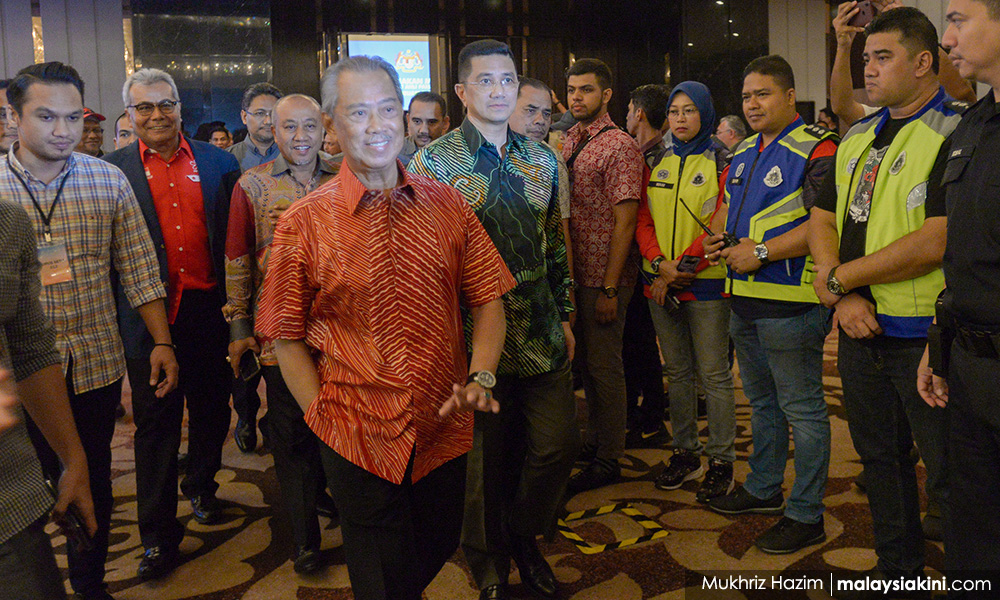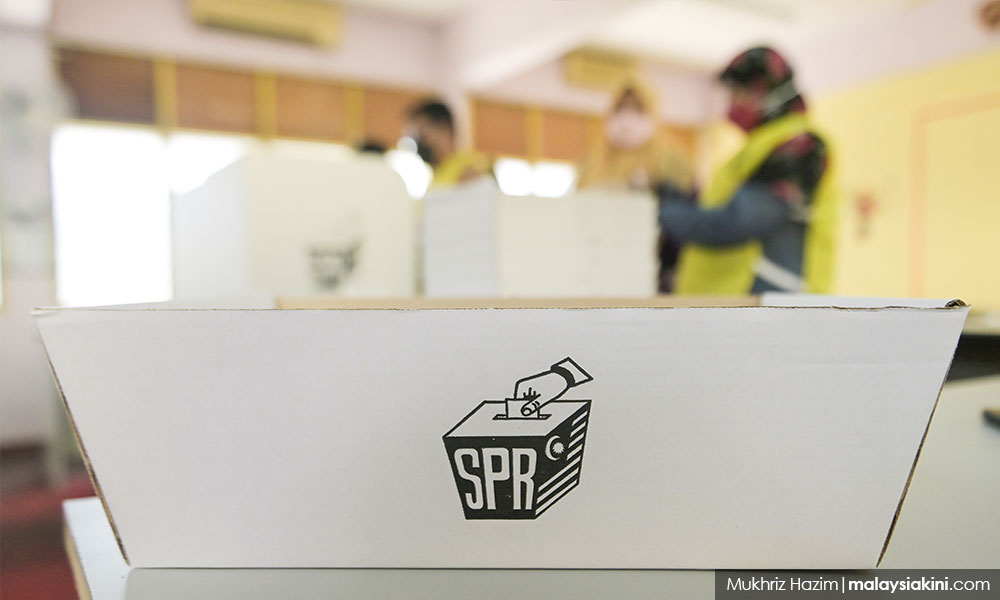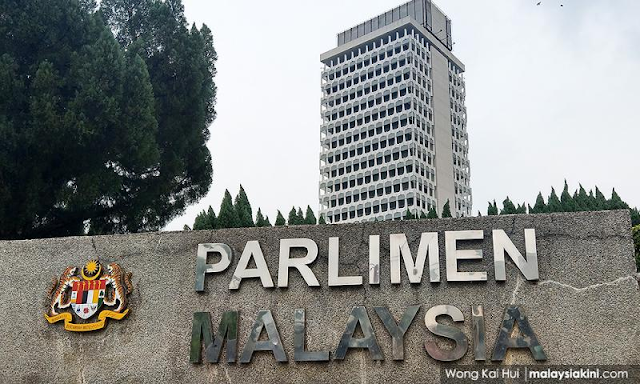One big obstacle to introducing an anti-hopping law (AHL) is the ruling by the then Supreme Court of Malaysia in 1992, which interpreted the constitution and declared crossing over to another political party was freedom of association.
Thus, in order to introduce the AHL, the first order of business is for Parliament to approve a constitutional amendment to bypass the 1992 court ruling.
And this requires a two-thirds majority vote among parliamentarians for the constitutional amendment to be passed.
But even this is not straightforward, as the amendment could be challenged in the Federal Court because any party concerned could seek legal remedy.
In 2015, retired Federal Court judge Gopal Sri Ram was reported to have said there could be no AHL in Malaysia because of the 1992 landmark judicial pronouncement.
"Even an amendment to the constitution will fail because freedoms under Part 2 of the national charter form part of the basic framework," he said.
Parliament could not enact laws, including the constitution, that touched on the basic structure like freedom of association, he added.
In the 1992 ruling, the bench interpreted the right to association included the freedom to disassociate, which is basically the right to hop.
The harmful effect on the nation and the rakyat of political instability can all be traced back to the freedom given to hop from one party to another. Ditto having three PMs within two years since 2020 has created both political and economic instability.
In September 2020, international rating agency Fitch Solutions predicted that politics in Malaysia is expected to blunt economic growth for the next decade.

Combined with slower population growth and reduced fiscal space to cushion against negative future economic shocks, Fitch predicted real GDP growth to be at just 3.4 percent over the next 10 years compared to 6.4 percent over the past decade.
Already for 2021, the first year of the new decade, GDP grew at 3.1 percent – lower than the 3.4 percent predicted by Fitch, which means politics still reared its ugly head in 2021.
Mitigating political instability
One way to ensure the right to switch party is still there but won't necessarily result in political instability is to add a constitutional provision whereby the seat of an MP shall become vacant if the MP ceases to be a member of, or is expelled or resigns from the political party for which the MP stood in the election.
So a by-election will be called for the seat in which the former MP can contest under the ticket of his or her new party.
It is as if the former MP is asking for endorsement for his move to switch party from the electorate, which had earlier voted for him, and it is really up to the electorate to endorse him or not through their votes during the by-election.
As for an independent MP, the same applies when his status as an independent legislator changes when he joins any political party.
This has to be added as a separate clause in the new provision to remove the ambiguity that it doesn't apply to independent MPs simply because expressions like "ceases to be a member of, or is expelled or resigns from the political party" do not make sense to them, as they do not have a political party to begin with.
With this separate clause, it means independent MPs would also have to vacate their seats because switching party for them is a change in status from one who has no party to one with membership in a party.
Just to see how useful this provision is in mitigating political instability, let's assume that this provision was there during the Sheraton Move.

The Pakatan Harapan government then wouldn't have been brought down because it won't be easy for a new coalition government to be formed with the support of more than 111 MPs.
The Perikatan Nasional (PN) government was formed because of its ability to get the support of about 116 MPs. Out of this, 11 MPs had switched from PKR to Bersatu.
Without this defection, PN won't be able to get the support of 116 MPs, only 105 MPs, which was not enough to form a government. This would mean the 11 PKR MPs would have to vacate their seat and 11 by-elections would have to be called.
Meanwhile, the act of a political party withdrawing from a coalition should not be considered as party hopping.
To take the example of the Sheraton Move, when Bersatu pulled out from the Harapan government, all Bersatu MPs were still members of Bersatu before and after the pull-out. So at the point of pulling out, there was no party hopping then.
Voting for a party, not a candidate
Another novel and creative idea to stem party switching is the proposal for a party-list based general election (GE) suggested by Padang Rengas MP Mohamed Nazri Abdul Aziz way back in 2020.
Under this scheme, it is the party that is the candidate in a GE, not an individual member of the party as currently practised. At the ballot box, voters will tick the party symbol and logo for the party they want in a constituency.
The winner will still be based on the first-past-the-post (FPTP) system in which the party with the most votes will win the seat. And the party winning the most number of seats will form the government.

At the conclusion of a GE, the winning party of a constituency will then appoint a party member to be the constituency's MP.
If midway through his term, the appointed MP jumps ship to another party, he cannot carry along his MP seat to his new party. This is because that seat does not belong to him but to the winning party that has appointed him to be the MP.
Moreover, when an MP switches parties, the seat does not have to be vacated to make way for a by-election. Instead, the winning party will appoint another individual member of the party as the new MP for the seat.
The beauty of this proposal is that the freedom to switch parties is allowed, but there won't be political instability because the winning party still holds the seat. On top of this, taxpayers' monies are substantially saved from holding a by-election.
Assuming this proposal is in place during the Sheraton Move, then there is no need to organise the 11 by-elections for the 11 PKR MPs who switched allegiance to a new party under the earlier proposal of amending the tenure of the term of office of MPs.
One can just imagine the cost of organising 11 by-elections and the hefty savings gained from not organising them.
Even when a sitting MP dies or is incapacitated from performing his duty or loses his MP-ship due to a criminal conviction, there is no need to call for a by-election to replace him. The winning party will just appoint another member of the party to replace him as the new MP.
In this brilliant scheme, the issue of the mandate of the rakyat given during a GE being stolen after the election will become irrelevant because the mandate will be with the winning party throughout until the next GE.
According to Nazri, a trained lawyer who was also a former de facto law minister, the amendment to the Election Commission Act 1957 to enforce a party-list system, in which voters would elect parties rather than individuals, only needed a simple majority to be approved.
This was unlike the two-thirds majority necessary for amendments to the Federal Constitution.
Speaking in Parliament on Nov 22 last year, Nazri, however, conceded that his proposal would not cover independent lawmakers, but said that was the risk voters must take in the unlikely event they opted to back one.
He further noted that independent lawmakers were not beholden to support any party even now. - Mkini
JAMARI MOHTAR is the editor of Let’s Talk!, an e-newsletter on current affairs.
The views expressed here are those of the author/contributor and do not necessarily represent the views of MMKtT.




No comments:
Post a Comment
Note: Only a member of this blog may post a comment.